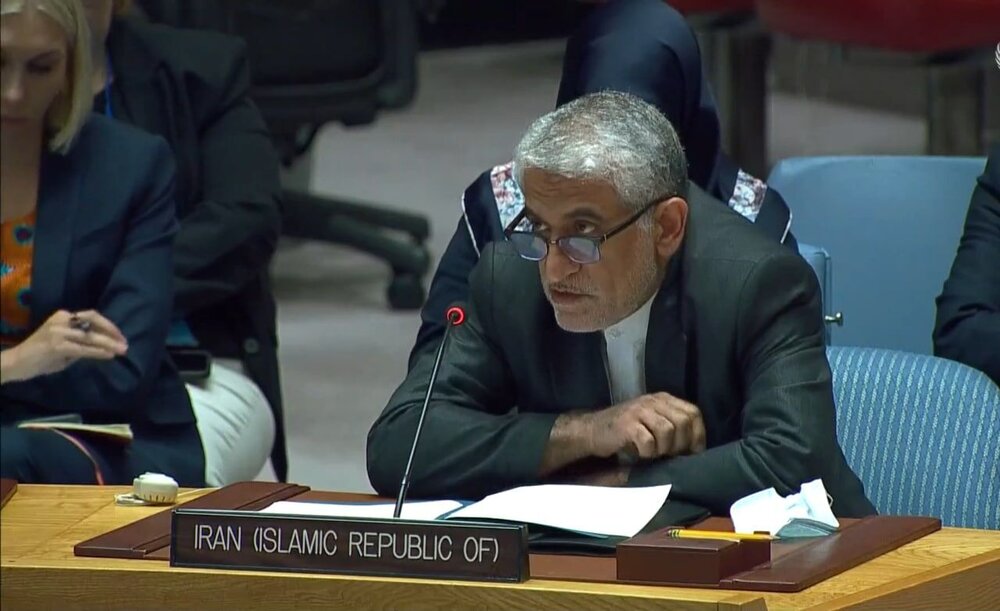Iran urges UN to maintain cooperative interaction between OPCW, Syria

TEHRAN- Iran has urged the UN Security Council to support the productive communications between the Syrian government and the Organization for the Prohibition of Chemical Weapons (OPCW).
Amir Saeed Iravani, Iran's ambassador and permanent representative to the UN, highlighted Syria's efforts to carry out its obligations under the Chemical Weapons Convention (CWC) during the Security Council meeting on Thursday. He emphasized that adopting a politicized approach and applying double standards to the Syrian chemical file will only divert technical discussions and can damage the Council's credibility and authority.
The senior Iranian diplomat to the UN continued by emphasizing that the Islamic Republic has consistently denounced the use of chemical weapons by any party, anywhere, and under any circumstances.
The Islamic Republic has invariably been the major victim of the most systematic use of chemical weapons in contemporary history, Iravani insisted.
The ambassador went on to point out that “our country is also of the international belief that the use of such inhumane weapons is a serious threat to international peace and security and should not be tolerated.”
He added, “The only way to ensure that chemical weapons will never be used again is to eliminate all of them globally, and to take all necessary measures to prevent the production of such weapons of mass destruction.”
The ambassador of Iran to the UN highlighted that his nation has often emphasized the need for a thorough, efficient, and nondiscriminatory implementation of the CWC.
“We believe that any attempt to politicize the implementation of the Chemical Weapons Convention and exploit the Organization for the Prohibition of Chemical Weapons (OPCW) for political purposes will place the legitimacy of the convention and the organization at stake,” Iravani underlined.
The Iranian diplomat continued, “We encourage the continuation of communications and interactions between the OPCW and the Syrian Arab Republic, and appreciate the Syrian government for having submitted the 166th monthly report to the OPCW director general Fernando Arias, calling attention to Syria's efforts to uphold its obligations under the CWC.” Syria has provided more information in the report on the specifics of its efforts to get rid of chemical weapons and their manufacturing sites.
Iravani expressed optimism that the impending meeting between Arias and the Syrian Foreign Minister, Faisal Mekdad, would contribute to the settlement of the parties' unresolved differences.
The Syrian government has been charged with using chemical weapons on its own civilians in the fight against terrorism on several occasions by Western media outlets and countries.
The OPCW, which oversaw the weaponry's disposal, received Syria's stockpile of chemical weapons in 2014 as part of a joint effort headed by the United States. Additionally, it has repeatedly denied employing chemical weapons.
The U.S., Britain, and France launched a series of airstrikes against Syria on April 14, 2018, in response to an alleged use of chemical weapons against the city of Douma.
The so-called civil defense group White Helmets reported the supposed incident and released films showing them ostensibly providing aid to victims.
The White Helmets group, which describes itself as a humanitarian NGO, is notorious for working with terrorist groups in Syria to stage chemical attacks in an effort to implicate Syrian government forces and create justifications for military strikes by a U.S.-led military coalition stationed in Syria since 2014.
The Syrian government vehemently denied the accusation that Damascus was responsible for the Douma assault, which was made by Washington and its allies.
Leave a Comment